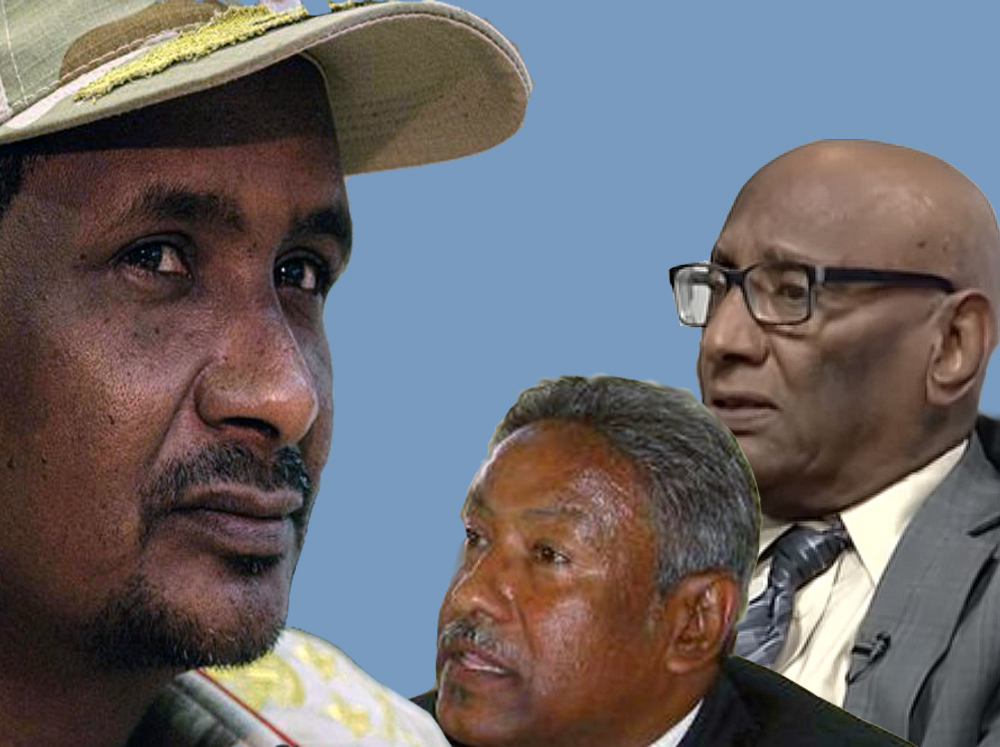
The Rapid Support Forces... The Cosmic Visitor
Hatem Elias
One of the most important Sudanese writers, Gamal Abdel-Malik (Ibn Khaldun), who has a dazzling biography and a unique narrative legacy.
Gamal Abdel-Malik (Ibn Khaldun), the Egyptian Coptic communist who fled to Sudan during the era of Abdul Nasser and became a Sudanese citizen, wrote his autobiography before his death, which was published by Azza House. The poet Hatem Al-Kinani had written about it, presenting a review in one of the literary newspapers.
He was the first Sudanese to write science fiction stories, and he has a famous story called (The Cosmic Visitor). In his beautiful autobiography, which one cannot stop reading from the first page to the last, he wrote about his interest in this rare genre in the Arab and of course, Sudanese narrative creativity.
Gamal Abdel-Malik (Ibn Khaldun)s biography came to me as I was examining the frightened slogan state of the citys intellectuals (left and right) due to this war, and their attempts to understand the future of the Rapid Support Forces, as well as their fate and the fate of their soldiers, the Nubians, Chadians, and possibly the Mauritanians. A situation ranging between enthusiasm, slogan mobilization, or even those writings whose ink was written by men who kept their promises to the marginalized, such as Dr. Mohamed Jalal Hashem, who warned them about the path to arrange a methodical vision even if from the method of (cultural analysis) and the vision of the margin and the center based on the criticism of the dominance of Arab-Islamic culture. But the facts surprised him that the Arab-Islamic culture itself has an Arab-Islamic Bedouin margin that can attack the center. In other words, the contradiction that he has always established for his vision and spilled ink between the margin and the center can occur within the social structure of Arab-Islamic culture itself. Therefore, he prefers the state and the armys situation, not out of love for the state and the army, but because it is a situation that can fall within the logic and mechanisms of possible historical negotiations with the official authority of the Arab-Islamic.
After the (Biraa Army) and the formations of the called men and women between Atbara, Berber, Abu Hamad, Obaidiya, Al-Shajara, and Wadi Sidna are defeated, the question will be where these forces or the remaining of them will go after they are defeated and flee towards Darfur (its Qazans), its villages, and valleys, heavily wounded by air raids and the battalions of Islamic glory, according to the prevailing mobilization discourse.
But it seems to me that there is another idea that we can borrow from the imagination of Gamal Abdel-Malik (Ibn Khaldun), which is to rent a huge spaceship, ask all members of the Rapid Support Forces to board it, and then transport them to another galaxy, which we can call the (Path of Safety) galaxy.
The only project to overcome the present and establish a respectable state in the future must go beyond the simple idea that the support (brought Bashir and brought the Islamists). Dr. Abdullah Ali Ibrahim, in his book about the important thing about Darfur and the causes of the emergence of the (Janjaweed) phenomenon, said that the economics of (Hakura) land forced them to carry weapons. And Hakura is not just tribal property used for farming and farmers, but organized and historical economic relationships between herders and farmers when agriculture turned from its self-sufficient state and became linked to the market. In addition to the environmental factor affecting, which is the drought that hit Darfur, it increased the need for expansion to meet the supply and demand expansion. This led to the entry of agriculture into the historical pathways that organized the relationship between farmers and nomads since ancient times. Therefore, friction was inevitable.
Although Abdullah Ali Ibrahim made a great cognitive effort, directing in his book the Communist Party to intensify its Marxist and cognitive presence instead of becoming a consumer of slogans regarding the wars of Darfur. And that the essence of the conflict there is not to lean towards pre-condemnation.
Dr. Abdullah said at the time that the Janjaweed were a revolution but were directed in the wrong direction. But Professor Abdullah himself, amidst this confusing war, returned to what the Communist Party warned against, to fall into the daily slogan consumption habits about this war. While we are waiting for him on the bank of leading the question to the abode of knowledge and thinking, he was satisfied that the modern state has become the crutch to which he declares his allegiance.
What is strange is that Professor A A Ibrahim classifies himself within the post-colonial critique school! That is, this war that our country is witnessing now is the daughter of the continuous historical flaw and deformity on which the modern state was based when it was born at the hands of the colonial midwife.
Could we abandon the simplicity that the solution of the (Rapid Support Forces) alone is enough for our future to rest, and the state to sleep on its (sedge bed)? It is impossible and very difficult for the solution of the Rapid Support Forces to be the solution unless we naively want to believe that as soon as this war stops, we can continue to manage our state and continue with the same old political procedures and ways of thinking. I think all of that is over, and the Rapid Support Forces will remain. Not as an armed militia case, but as a context and a socially expressed reality that cannot be canceled.

